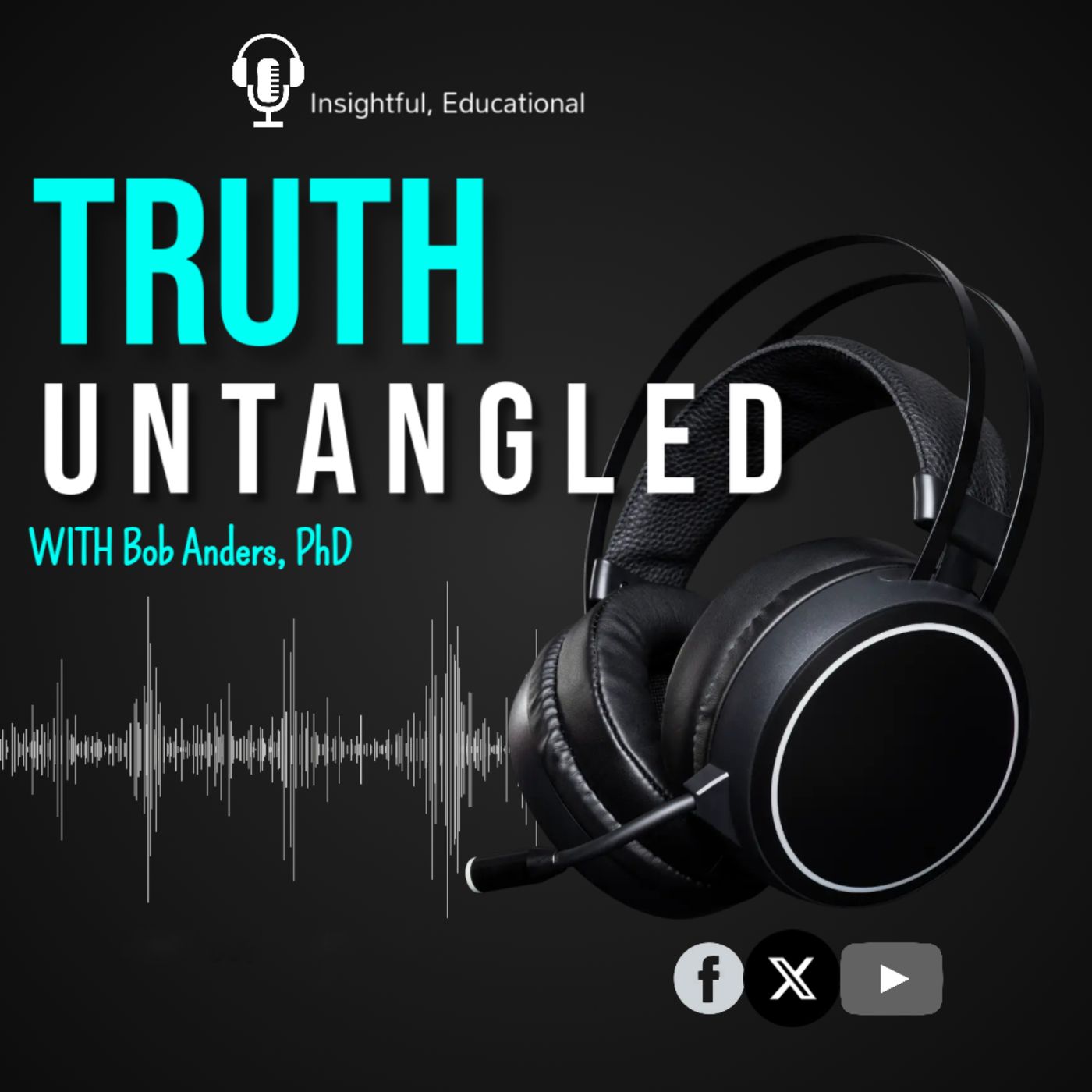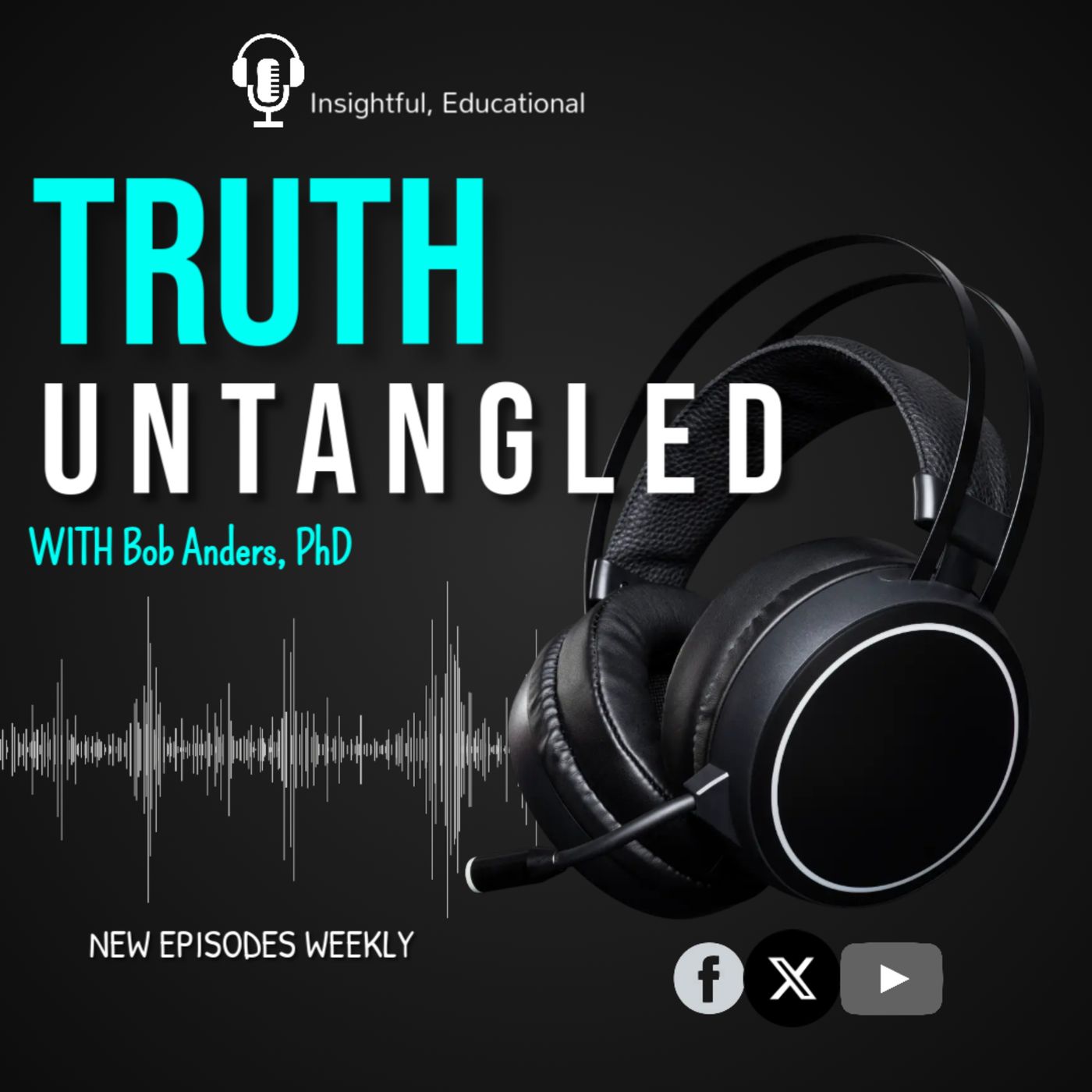Discover Truth Untangled
Truth Untangled

Truth Untangled
Author: Bob Anders, Ph.D.
Subscribed: 0Played: 3Subscribe
Share
© Bob Anders
Description
Bob is an International Award-Winning Producer with degrees in Psychology and a Ph.D. In Journalism. He has worked for over 30 years in Radio and Television Broadcasting.
He is presently retired and enjoys spending his spare time creating podcasts.
Member Society of Professional Journalists
He is presently retired and enjoys spending his spare time creating podcasts.
Member Society of Professional Journalists
193 Episodes
Reverse
The term "affluenza" has become popular in both academic and everyday discussions, especially when talking about wealth, consumerism, and mental health. "Affluenza" blends the words "affluence" and "influenza" to describe a social problem where people care too much about money and possessions. Many see it as a modern problem that affects people in rich societies, leading to negative effects on their minds and relationships.
Recent research has drawn attention to the intensifying problem of left-wing extremism and the troubling rise of violence associated with it.
The impulse to celebrate another person’s death reveals a profound distortion in the human spirit, a sickness of mind and soul that is far darker than simple hatred. To mark someone’s passing with laughter, revelry, or glee is to step outside of the natural empathy that binds human beings together.
stochastic terrorism—the phenomenon in which public rhetoric, employed by the mass media and politicians, incites ideologically motivated violence that is statistically predictable but individually random. This podcast examines how certain segments of left-leaning media and politicians, including CNN and MSNBC and the Democratic Party, have often employed inflammatory language or contributed to hostile narratives that, in extreme cases, have correlated with acts of violence by radicalized individuals, most recently resulting in the death of Charlie Kirk. This podcast analyzes how repeated dehumanization of political figures or groups—such as labeling them as existential threats, Nazi’s, subhuman, etc —can create a climate where lone actors feel justified in taking violent action, even if such outcomes are never explicitly endorsed.
Consuming news may foster ignorance, stress, and polarization, not informed citizenship, researchers argue.
The phenomenon of women being drawn to “bad men”—those who exhibit traits like dominance, emotional unavailability, rebelliousness, or cruelty—has long fascinated psychologists, sociologists, and cultural critics. Far from being a mere stereotype, this attraction reflects a complex mix of evolutionary, psychological, and cultural influences that shape individual preferences and romantic dynamics.
Thrill seekers occupy a unique psychological space, straddling the line between audacity and awe. These individuals are defined not only by their actions—such as skydiving, rock climbing, or racing at breakneck speeds—but also by a deep, intrinsic drive to experience life at its most intense. Understand the personality of a thrill seeker. Explore the complex mosaic of traits, motivations, and psychological mechanisms that compel them toward the extraordinary.
Research published in Personality and Mental Health clearly states that the presence of tattoos on forensic psychiatric inpatients should alert clinicians to a possible diagnosis of Antisocial Personality Disorder (ASPD). These tattoos also indicate a potential for histories of suicide attempt, substance abuse, and sexual abuse.
It is one of the most unsettling truths about humanity: under certain conditions, good people—those who are compassionate, loving, charitable, and often admired by peers—can commit crimes so horrific that they seem to defy all logic. When faced with such atrocities, society is often quick to label the perpetrator as inherently evil, mentally ill, or irredeemable. Yet the reality is much more complex and disturbing. The psychological, social, and situational factors that can transform ordinary individuals into agents of cruelty offer a sobering glimpse into the human condition and challenge the very foundations of moral certainty.
For a long time, the main story about mental illness—like depression and anxiety—has been that there's a "chemical imbalance" in the brain. This idea, which is usually explained in simple terms, says that mood disorders come from problems with neurotransmitters like serotonin, dopamine, and norepinephrine. According to this idea, mental illnesses are like diabetes or high blood pressure: a glitch in brain chemistry that needs a pharmaceutical fix, usually in the form of antidepressants or other psychiatric meds. This model has been useful in some ways, especially in reducing stigma by promoting the idea that mental illness is a medical condition rather than a moral failing. However, it is also deeply flawed and is increasingly recognized as scientifically outdated.
The concept of personality has long been a subject of intense study in the field of psychology. Researchers have explored not only the positive aspects of personality but also the darker side of human nature. A particularly intriguing area of study is the Dark Triad, a set of personality traits regarded as representing the darkest aspects of human nature.
Anchoring bias is a cognitive bias that causes individuals to rely heavily on the first piece of information they receive about a topic, even when subsequent information becomes available. This initial piece of information, known as the "anchor," serves as a reference point that influences all subsequent judgments and decisions, often leading to poor choices in various contexts.
Society has long promoted the idea that a college degree is a clear sign of intelligence. This assumption, firmly entrenched in cultural narratives and perpetuated by employers, educators, and even parents, equates formal education with cognitive ability, critical thinking, and problem-solving skills. This notion is flawed and misleading. While a college degree can signify perseverance, dedication, and specialized knowledge in a particular field, it is not an absolute measure of intelligence.
In today's digital age, where news consumption is heavily influenced by digital engagement and personality-driven journalism, Q Scores, also known as Q Ratings, have become a critical tool for assessing the appeal of media personalities. Originally developed as a marketing tool to measure the popularity of celebrities, Q Scores have seeped into the world of news reporting, shaping which journalists and anchors gain prominence. But the reliance on Q Scores raises an important question: does the metric prioritize likeability over credibility in the news media?
Social media is now a vital part of modern life, providing platforms for communication, expression, and networking. But beware: beneath its benefits lies a complex web of negative psychological effects that can be profoundly damaging to mental health. This podcast will provide hard statistics and data that clearly illustrate the toxicity of social media and explore the reasons why it poses such significant risks.
It seems that Americans are in the midst of a raging epidemic of mental illness at least as judged by the increase in the numbers treated for it.
In any society, education is universally recognized as a powerful tool for individual empowerment and societal progress. However, there is a disturbing trend where certain systems, whether governmental, corporate, or other institutional, have a vested interest in ensuring that the general population remains uneducated or undereducated. This deliberate perpetuation of widespread ignorance begs the question: why does the system want people uneducated?
In a world inundated with information, it has become increasingly important to discern fact from fiction. However, the phenomenon of illusory truth plays a key role in shaping our beliefs and attitudes, often to the advantage of powerful entities like governments and media organizations. Illusory truth, also known as the illusion-of-truth effect, refers to the tendency of people to believe information to be true after repeated exposure, regardless of its veracity.
Psychological operations, or psyops, are campaigns that try to change how people think, act, and make decisions. Governments, intelligence agencies, companies, and sometimes people working alone use psyops to influence public opinion, create division, and control what people think.
In the digital age, smartphones are everywhere and play a big role in our daily lives. These small devices connect us to a huge online world, giving us information and entertainment right away. But as more and more people get smartphones, there are worries about how they affect our mental health and well-being.






